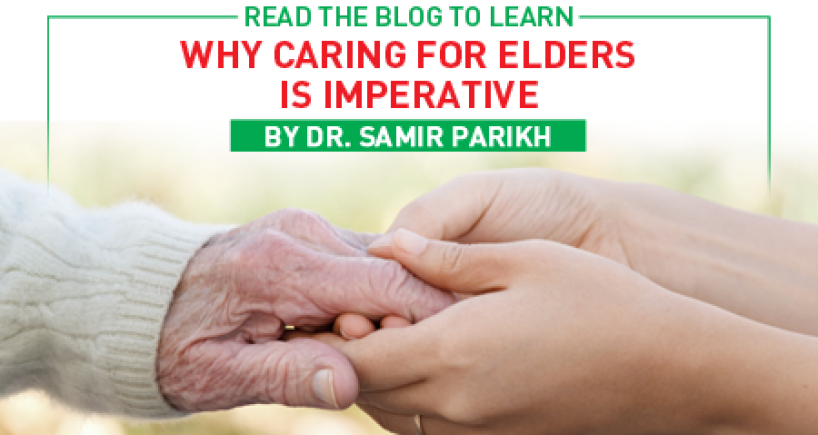
International Day For Elderly
Geriatric Mental Health – Caring for the Elderly
With the increasing rates of life expectancy as a result of recent progress in medical research and sciences, caring for the later ages of life now beginning to assume greater importance. And therefore caring for the elderly sections of the population involves not just restricted to their physical health and safety, but to a large extent also includes their mental health and psychological well-being.
Old age is characterized by certain developmental concerns surrounding a conflict between generativity and productivity which is commonly associated with this stage of life. Especially in the contemporary world with shifts to a nuclear setting, and changing family structure, such issues related to loneliness, retirement, boredom, etc. become more pivotal. Therefore, it is important on the occasion of International Day for Elderly for us to take out some time from our past-faced lives to focus on the need for developing stronger psychosocial support systems for individuals to rely on as a part of their ageing process. This is especially important today in light of the social alienation that is breeding within the roots of the society, with an invasion of technology over our personal as well as professional lives. It is indeed saddening to witness the decreased importance and value being given to relationships and face-to-face interactions as compared to the rampage use of the social media and virtual world. With the de-construction of the closely knit family structures, the need of the hour is to ensure adequate psychosocial support systems for all individuals in our society, not just being restricted to their old age, but beginning from earlier phases of development, so as to ensure the building of such support systems throughout the life span.
Geriatric Mental Health
The elderly population is inevitably susceptible to facing physical health adversities as a natural part of the ageing process. However, their mental health and psychological wellbeing is no exception to this rule, more so when there is a lack of adequate social support system. In addition, these concerns do not necessarily need to be dependent upon the availability of support, and more importantly depend on the individual’s perceptions of the availability of support. For instance, loneliness can be experienced not only when the elderly person is without any family member or form of any other social support around him or her, but could also be experienced within the context of an engaged family structure, stemming from the elderly person’s perception of neglect leading to a sense of abandonment and loneliness.
Similarly, some of the other common stressors associated with the geriatric population could include changes in lifestyle stemming from age-related deterioration, increased dependency on others, reduced mobility, and further changes in routine patterns. Further, there could be financial insecurities associated with such an age group, along with concerns related to retirement, savings, etc. Another common are of concern with this section of the population is an inter-generational conflict, which could be manifested especially in situations where they are involved in caregiving for grandchildren, including differences of opinions, seeking respect and obedience, and experiencing a sense of loss of control. In addition, such a later stage of life is typically associated
with dealing with death of relatives, friends and other close people as well, along with a loss of sense of purpose, identity loss, and other existential crises. Finally, old age brings with it a deterioration of physical abilities, dealing with chronic illnesses, decreased productivity, and a loss of strength. A combination of such stressors would in turn increase their vulnerability to depression, anxiety, neurocognitive disorders and other mental problems.
Caring for the Elderly
On this International Day for Elderly, we need to resolve to create adequate support systems for the welfare of the elderly population of the society. While a significant progress has been made in the research of psychosocial interventions that may be helpful in geriatric population, there is still a strong need for public awareness and education campaigns, for both the elderly as well as their family members, which is the only way to work towards the appropriate implementation of these interventions. Creating systems which support the elderly within our communities and which allow for greater respect and value being accorded to the role they play is a need of the hour. Without instilling such compassion within our attitudes towards the elderly is vital to ensure adequate care for their well-being.
श्रेणियाँ
सभी साफ करेंMeet the doctor

- Mental Health and Behavioural Sciences | Mental Health and Behavioural Sciences | Psychiatry | Clinical Psychology
-
21 Years
-
900



















